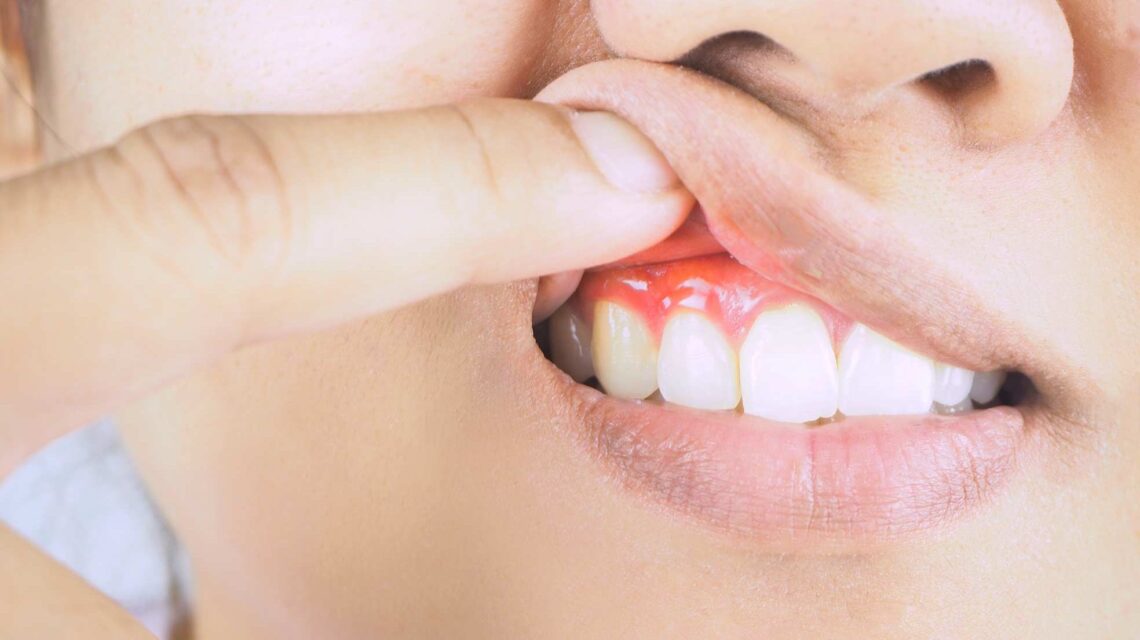Gum disease, or periodontal disease, can take on several forms, which can get progressively worse and lead to pain, tooth loss and other diseases.
Gum disease is very common and it can be very serious. Not only does it affect your mouth but it can also cause issues within your entire body, especially if left untreated. While gum disease in Ealing can take on several forms, which are covered further down the page, the most common form is gingivitis. It can leave your gums red and swollen and bleed easily. Not very pleasant. These initial symptoms can often be treated by a dentist in Ealing. Left untreated and you may find that the result is tooth loss and issues with the bone in the jaw.
Gum disease has also been shown to be a risk factor for heart disease, hypertension, respiratory problems, dementia, and complications with both pregnancy and diabetes.
How you can treat and prevent gum disease
Want to protect your gums from bacteria? It’s easy. Dedicated home care and regular visits to the Ealing dental clinic are the best protection to keep you healthy. Gum disease isn’t pretty and you don’t have to tolerate it. Our dental hygienists have all of the tools to recognise, treat and prevent gum disease. Early detection and treatment is key.
What are the symptoms of gum disease?
Gingivitis is the most common form of gum disease. It is also the most mild. Symptoms of gingivitis include red or swollen gums that bleed easily. When left untreated, gingivitis can quickly advance to periodontitis, a serious form of gum disease that may produce symptoms such as:
- A persistent bad taste in the mouth
- Chronic bad breath
- Gum separation from the tooth
- Pus in between teeth
- Loose teeth
- Changes to bite strength and tension
- Oral pain
Left untreated, periodontitis can result in tooth loss as well as necrosis of bone in the jaw.
What are the stages of gum disease?
Stage 1
Gingivitis – curable with minor dental procedures
Plaque and build-up of bacteria around the gum line lead to the earliest stage of gum disease known as Gingivitis.
Causes:
- When you don’t brush or floss every day, bacteria grow and cause disease in the gum line.
- Gums become swollen and inflamed.
- Normal pink gums become red and puffy.
- Sometimes brushing and/or flossing cause gums to bleed.
Prognosis:
- The disease can be reversed, because bone and connections that hold teeth in place are not affected.
- Removing plaque and bacteria helps the gum tissue heal, and gingivitis is reversed.
Stage 2
Untreated Gingivitis
Causes:
- Gingivitis is not treated.
- Conditions advance to periodontitis, which means bone and fibres that hold teeth in place are now damaged.
- Spaces open between teeth and gum tissue forming pockets, or hollow areas, around the teeth where plaque and bacteria build-up. This build-up destroys bone and structures that hold teeth in place.
- Sometimes gum tissue recedes and creates gaps between teeth.
Prognosis:
- Treatment must begin sooner rather than later to prevent more damage and to prevent loss of teeth.
Stage 3
Advanced periodontitis
Causes:
- Gum disease has advanced to the final stage.
- Uncontrolled growth of bacteria has destroyed the structures and bone that hold teeth in place.
- Pockets around teeth are getting deeper and deeper.
- Teeth become mobile and loose.
- Shifting teeth that are loose can change the bite.
Prognosis:
- Gum disease left untreated advances without stopping. Tooth loss is a likely result.
While it may sound like gum disease can advance quickly, early detection is key to ensure that minimal damage is done. Regular check-ups with your Ealing dental clinic and good practice of dental hygiene at home can help you to avoid this from happening.
If you’re looking for a trusted, well respected and highly experienced private dentist in Ealing, West London our friendly state-of-the-art clinic can help. Our goal at SSS Ealing Dental and Skin clinic is to provide the highest standards of dental care in a manner tailored to meet your specific needs and wishes.

